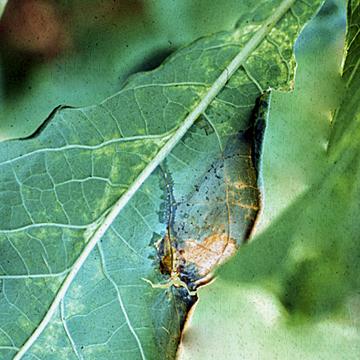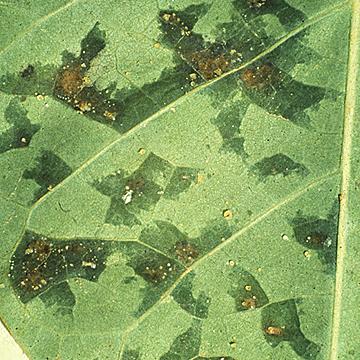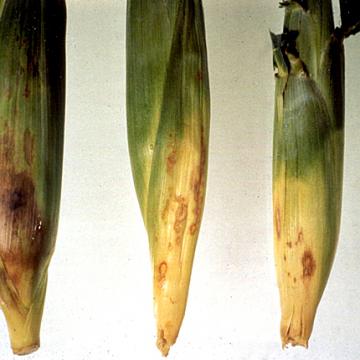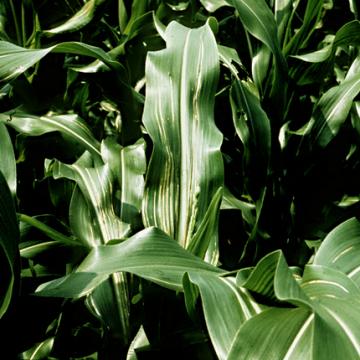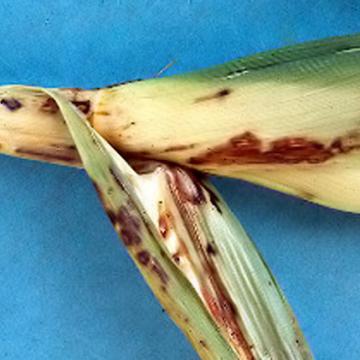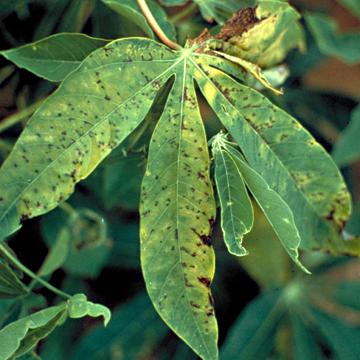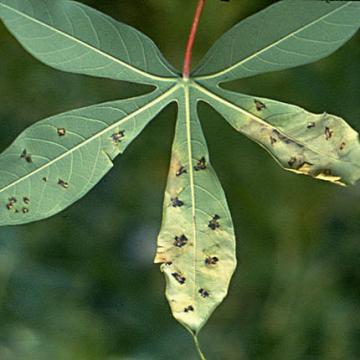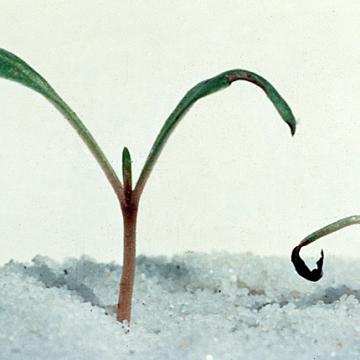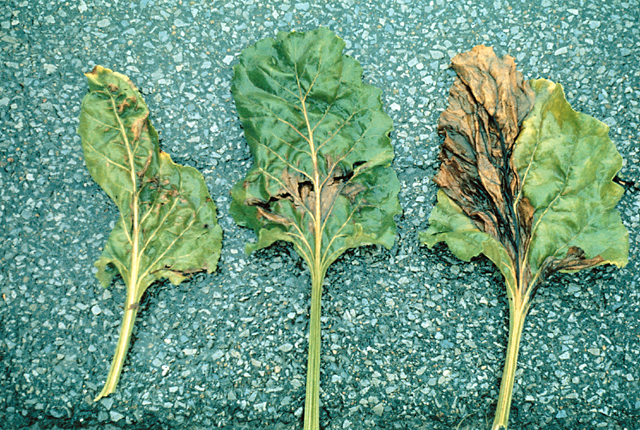DISEASE: Bacterial blight
HOST: Cassava
Leaf with angular, water-soaked, vein-delimited lesions.
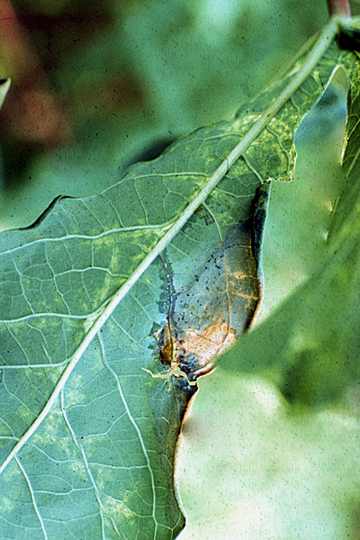
Bacterial blight | Cassava
DISEASE: Bacterial blight
HOST: Cassava (Manihot esculenta)
PATHOGEN: Xanthomonas axonopodis pv. manihotis
PATHOGEN SYNONYM: Xanthomonas campestris pv. manihotis
SOURCE: A. Hayward
DISEASE: Bacterial blight
HOST: Cassava
Cassava with angular leaf spots and yellow ooze. Symptoms include leaf spots, wilt, and dieback. The bacterium frequently invades systemically.
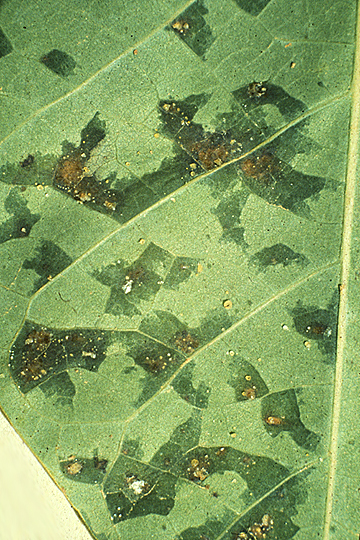
Bacterial blight | Cassava
DISEASE: Bacterial blight
HOST: Cassava (Manihot esculenta)
PATHOGEN: Xanthomonas axonopodis pv. manihotis
PATHOGEN SYNONYM: Xanthomonas campestris pv. manihotis
SOURCE: A. Hayward
DISEASE: Bacterial leaf blight and stalk rot
HOST: Corn (Maize)
Corn husk leaves with brownish red streaks and blotches. The leaves turn brown but may later become gray or white. Symptoms vary depending upon genotype.
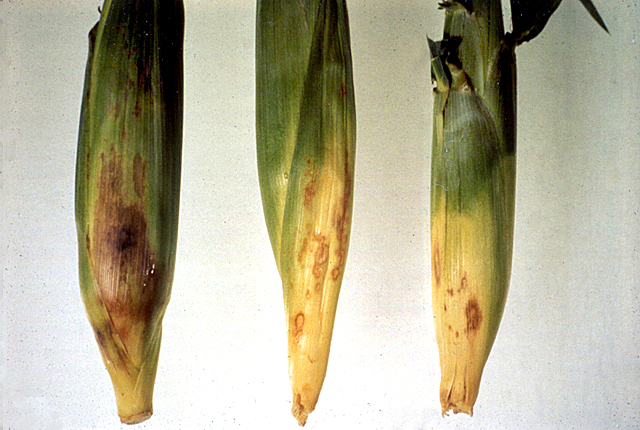
Bacterial leaf blight and stalk rot | Corn (Maize)
DISEASE: Bacterial leaf blight and stalk rot
HOST: Corn (Maize) (Zea mays)
PATHOGEN: Acidovorax avenae
PATHOGEN SYNONYM: Acidovorax avenae subsp. avenae
SOURCE: A. Alvarez
DISEASE: Bacterial leaf blight and stalk rot
HOST: Corn (Maize)
Leaves with whitish streaks.
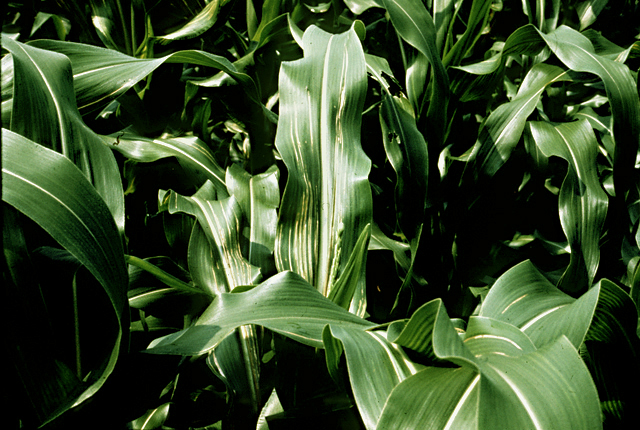
Bacterial leaf blight and stalk rot | Corn (Maize)
DISEASE: Bacterial leaf blight and stalk rot
HOST: Corn (Maize) (Zea mays)
PATHOGEN: Acidovorax avenae
PATHOGEN SYNONYM: Acidovorax avenae subsp. avenae
SOURCE: R. Gitaitis
DISEASE: Bacterial leaf blight and stalk rot
HOST: Corn (Maize)
Lesions may vary from brown to red, sometimes gray or white, and some genotypes have red borders around lesions.
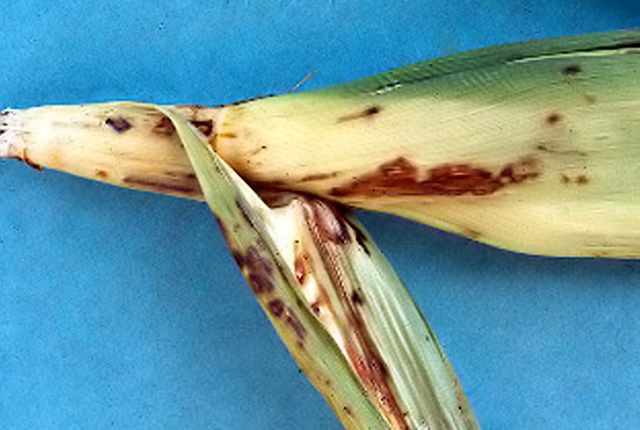
Bacterial leaf blight and stalk rot | Corn (Maize)
DISEASE: Bacterial leaf blight and stalk rot
HOST: Corn (Maize) (Zea mays)
PATHOGEN: Acidovorax avenae
PATHOGEN SYNONYM: Acidovorax avenae subsp. avenae
SOURCE: R. Gitaitis
DISEASE: Bacterial leaf spot (Bacterial necrosis)
HOST: Cassava
Cassava with yellowish leaves and water-soaked, angular spots. The disease is primarily on foliage, although the pathogen may invade stem buds and young branches.
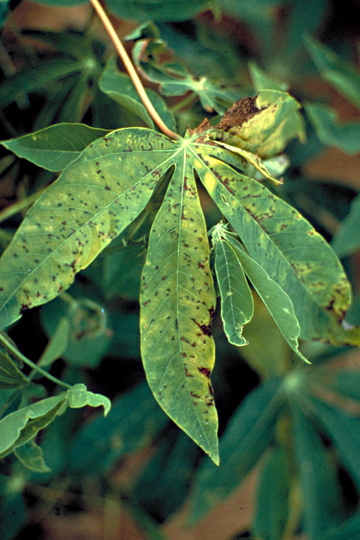
Bacterial leaf spot (Bacterial necrosis) | Cassava
DISEASE: Bacterial leaf spot (Bacterial necrosis)
HOST: Cassava (Manihot esculenta)
PATHOGEN: Xanthomonas cassavae
PATHOGEN SYNONYM: Xanthomonas campestris pv. cassavae
SOURCE: APS
DISEASE: Bacterial leaf spot (Bacterial necrosis)
HOST: Cassava
Cassava with brownish lesions and blackish edges. Leaves turn yellow with multiple infection sites.
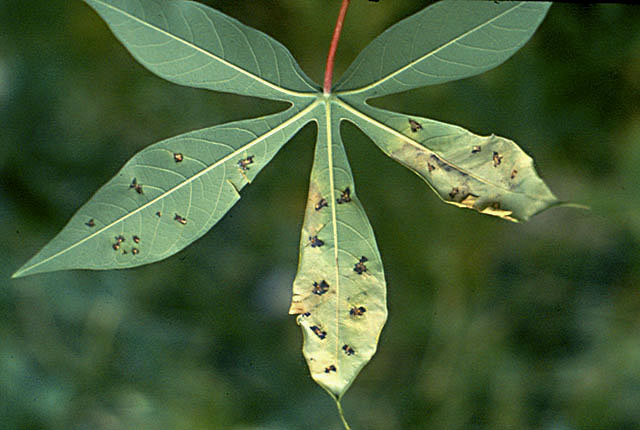
Bacterial leaf spot (Bacterial necrosis) | Cassava
DISEASE: Bacterial leaf spot (Bacterial necrosis)
HOST: Cassava (Manihot esculenta)
PATHOGEN: Xanthomonas cassavae
PATHOGEN SYNONYM: Xanthomonas campestris pv. cassavae
SOURCE: H. Maraite, A. Alvarez
DISEASE: Bacterial leaf spot (Blight)
HOST: Beet
Seedling blight stage of the disease.

Bacterial leaf spot (Blight) | Beet
DISEASE: Bacterial leaf spot (Blight)
HOST: Beet (Beta vulgaris)
PATHOGEN: Pseudomonas syringae pv. aptata
PATHOGEN SYNONYM: Pseudomonas aptata
SOURCE: C. Schneider


